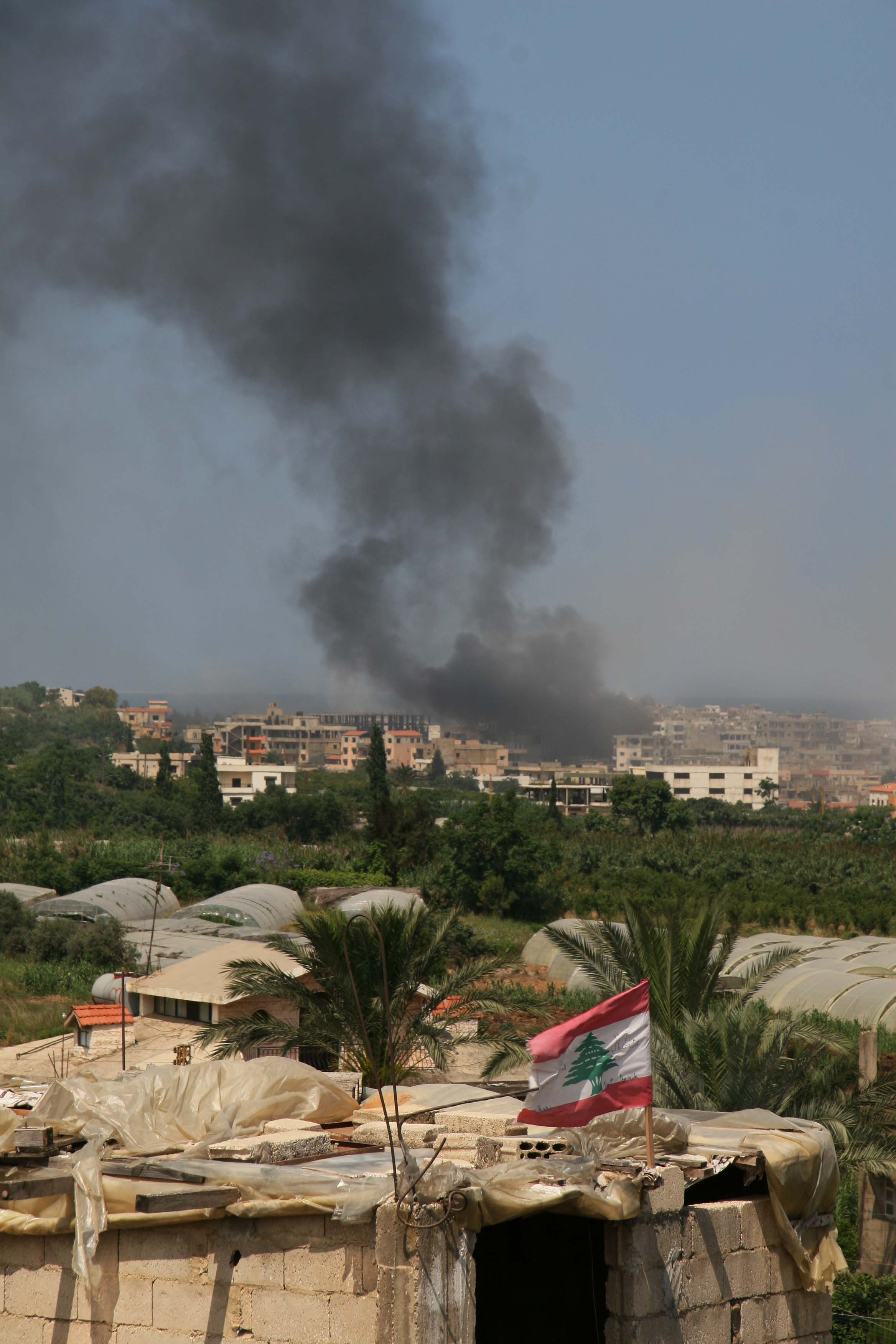Aid groups are preparing to return Palestinians to the ravaged Nahr al-Bared refugee camp in northern Lebanon, though it remains unclear whether a breakthrough in talks between the army and Fatah aI-Islam is imminent.
Even if fighting between the army and Sunni militant group Fatah al-Islam does end soon, tough challenges remain, aid agencies warn. Unexploded ordnance and rubble imperil the refugees’ way home. Many houses are ruined and further dangers and diseases lurk in the damaged water and sewage networks, they said.
A group of Palestinian religious leaders are mediating between the army and Fatah al-Islam to end the month-long fighting, which has killed at least 164 people, including 75 soldiers, at least 59 militants and 30 civilians.
Osama Hamdan, Palestinian party Hamas’s representative in Lebanon, said the army was insisting on the surrender of Fatah al-Islam leaders and there was still “no solid news of a solution”.
“I can’t say that there is anything evident yet, but I hope the mediators can make progress, which means ending the Fatah al-Islam fire and stabilising Nahr al-Bared,” he told IRIN. Hamdan is not part of the mediation team, but Hamas, one of the most popular political movements among Lebanon’s 400,000-strong Palestinian population, is working with the mediators, he said.
“More and more dangerous”
The Palestinian Red Crescent (PRC) is the only humanitarian organisation entering Nahr al-Bared, taking in food, water and medical supplies in ambulances and bringing out Palestinian civilians, despite an upsurge in fighting.
 Photo: Hugh Macleod/IRIN  |
| Despite aid delivery to refugees at Nahr al-Bared, access to thousands in need remains limited |
However, no ambulance was able to go in on 21 June, said Virginia De La Guardia of the International Committee of the Red Cross (ICRC). “It is getting more and more dangerous.”
In the past month thousands have fled the camp which once held 40,000, and 1, 541 people have been evacuated, De La Guardia said. She preferred not to estimate how many civilians remain, but the PRC’s Dr Youssef Assad said it was no more than 2,000, and others have put the figure in the hundreds.
“We are still very concerned and focusing on getting assistance to these people because we don’t know how long this is going to last,” De La Guardia said. But assembling and evacuating people under fire has been difficult.
Aid workers say many Palestinians left behind are afraid of leaving their possessions and homes after a life of displacement. Some have lost their homes more than once.
The ICRC sent in 1,500kg of food, 1,000 litres of water and 340kg of bread on 19 and 20 June, De La Guardia said.
Unexploded ordnance
“The problem of unexploded ordnance will be a very big issue when people try to go back,” De La Guardia said.
A leaflet produced by the ICRC, PRC and the Lebanese Red Cross will be handed out over the weekend in Beddawi camp, which has absorbed most Nahr al-Bared escapees, and in some mosques and schools in nearby Tripoli. It contains pictures and basic information on avoiding the munitions.
“It’s basically to raise awareness about the possible dangers, because many of them are completely unaware,” she said.
UNRWA prepares for return
“The first stage will be de-mining teams entering and clearing mines, booby traps and UXOs [unexploded ordnance] and securing a safe corridor so we can channel the basics, first aid and food and water to those inside. We believe there are still families in there.”
After that, a sanitation team would disinfect the camp, then would come an assessment of the damage, clearing rubble, opening roads and securing flimsy housing in the poverty-stricken camp, she said.
Bringing in drinking water to fill tanks and repairing sewage and water networks would also be priorities for UNRWA.
The Lebanese government has promised to rebuild Nahr al-Bared.
lf/cb
This article was produced by IRIN News while it was part of the United Nations Office for the Coordination of Humanitarian Affairs. Please send queries on copyright or liability to the UN. For more information: https://shop.un.org/rights-permissions




